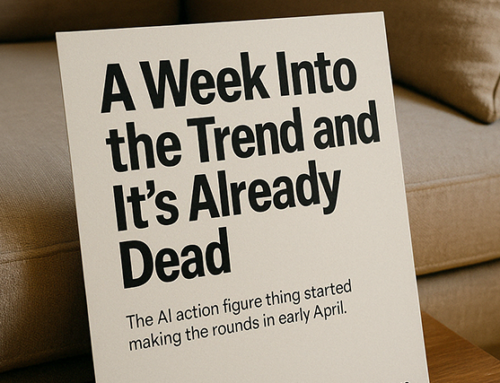New year! New Me! Back to the gym, back to karate: ready to take the bull by its horns and make 2024 the year I want it to be.
Sound like you in 2023?
Weird how we go through the same cycles isn’t it?
According to the Fisher College of Business, 23% of people don’t make it past the first week of their resolutions. Nearly half have chucked them in before the first month is history.
Why is this?
An interesting potential answer came to me from a very odd place,… a book by Noel Edmonds.
Now before I rattle into the nuts and bolts, I’m going to be clear that, while an interesting idea, I’m not going to sit here and type anything remarkably profound. I’m no new-age, retiring hippie.
This isn’t an advertisement for any spiritual philosophy: just a quick rumination on the potential power of words.
Mr. Edmonds is a vocal advocate for something called “Cosmic Ordering” – the idea that the universe, being vast and rich, will deliver to you what you ask it to. All you need to do is believe that it will, stop questioning yourself and your limitations and place an “order”.
To his credit, Noel is very clear that he doesn’t see this idea as spiritual or supernatural but a matter of self-will.
In the most basic sense:
If you order the cosmos to do something for you, and expect it to happen, you remove the self-imposed barriers you subconsciously place in your own way that stop it from happening.
Because you believe it will happen, you work harder to make it happen.
I freely admit that I just skimmed the book on a friend’s coffee table. There’s probably a lot more to it but it did get me thinking: is our ability to succeed affected by how we word our plans?
“I resolve to go to the gym more”,… doesn’t sound very proactive does it? I resolve to. I hope to. I’ll try.
“I WILL go to the Gym more” Better, stronger, bolder.
“I will buy a new gym membership and make sure I go every Monday night for the next two months because I want to fit into those shorts again. I want to fit into those shorts because we’re going on holiday and I want to look good on the beach. And if I don’t manage it, I am telling my wife to tell her friends of my failure, every time.”
Bullet proof.
Failure is often a matter of not believing in our ability to succeed. It doesn’t take a treatise on cosmic coincidence to know that we often get into our own heads when it comes to failure.
Appealing to a higher power to ensure that something happens is an urge humanity has had for as long as we’ve searched for gods.
The faithful call it prayer but even prayer has a limitation: God has free will and is free to say no.
The “cosmos” in Cosmic Ordering isn’t a conscience. It can’t say no. If you believe in it, it must happen.
A freeing idea, isn’t it? That you can tell the universe to obey you.
It takes the pressure away. It takes the question away. It provides certainty.
I will fit into those shorts.
All of this is the semantics of language. How you phrase the problem has an effect on how you treat the problem.
We’ve known about the power of language to influence us for thousands of years. There are people in the world who can’t see certain colours simply because their language doesn’t contain a word for that colour. It’s not that they can’t describe it, they can’t see it.
We marketers, especially those clever devils the Copywriters, use this power all the time,… which makes us sound a bit like Bond villains.
So how will you treat your New Year’s Resolutions in 2024? Suggest timidly that you may or order the universe that you must?
I’d be fascinated to hear your results.





